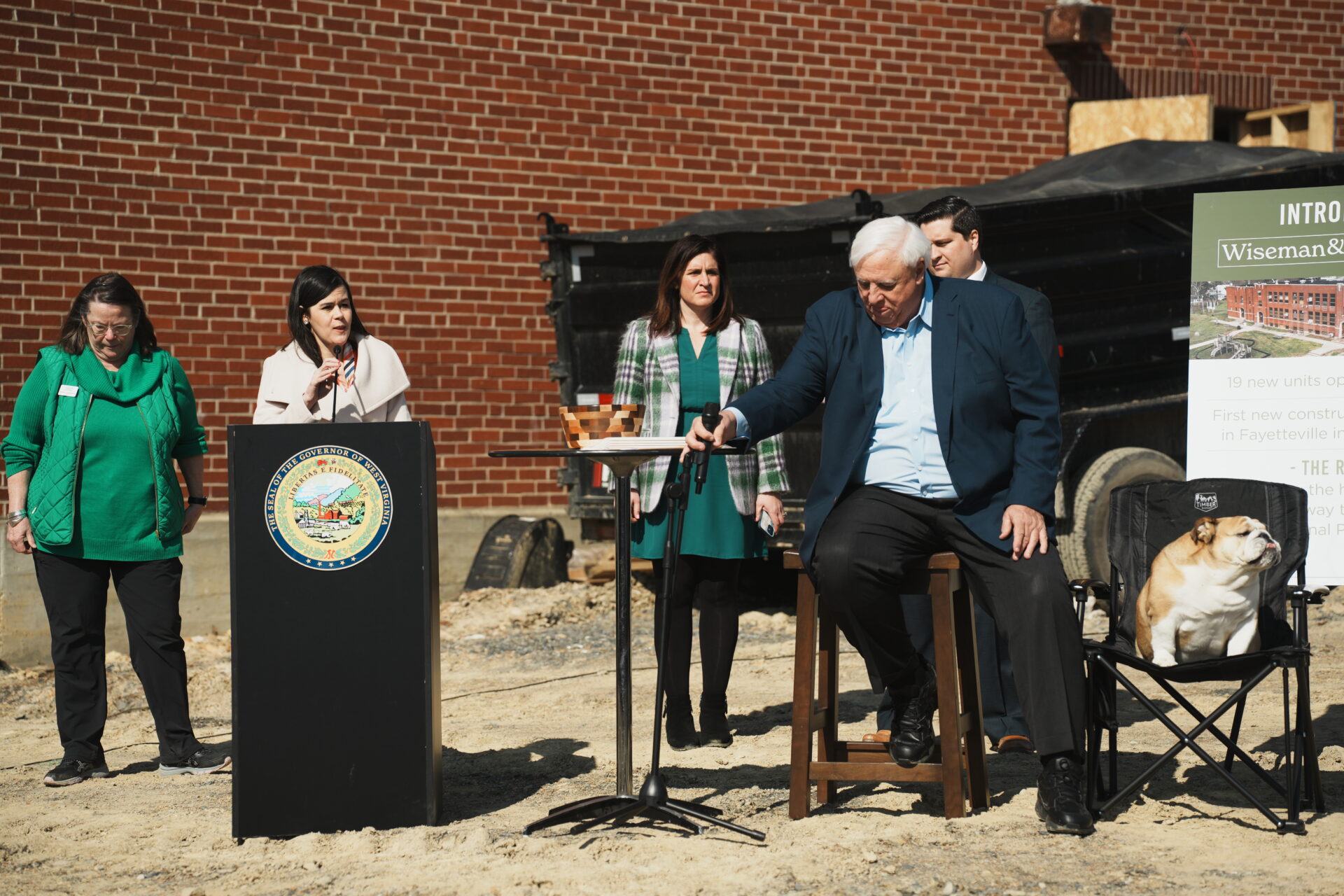David Reitz is CEO of Marion County based Stella Construction. The veteran home builder has followed the state-incentive-laden BUILD WV Act.
Since it was passed into law last year. Reitz said he’s working to persuade Commerce Secretary James Bailey to create a BUILD WV certified district in his home county.
“We’re seeing a lot of growth from people that are working in Morgantown or working in Bridgeport, we’re kind of smack dab in the middle,” Reitz said. “There’s a convenience and a desperate need for middle income housing, here and everywhere.”
The BUILD WV Act was created in 2022 to grow communities across the state and attract new, workforce ready housing developments. BUILD WV offers up to three types of tax credits as incentives for housing developers, including a sales tax exemption for building materials, a 10-year property value adjustment refundable tax credit, and a potential municipal B&O exemption.
Secretary Bailey joined Gov. Jim Justice and others in Fayetteville Thursday to sign House Bill 3036 into law. The legislation increases the number of certified districts under the one-year-old BUILD WV Act and raises the limit on approved costs.
There was a limit of three undesignated certified districts within the act. The new legislation raises that limit without a number, including those who qualify under a set of economic development criteria within an annual $150 million overall threshold. The secretaries of Commerce, Tourism and Economic Development will make the district designations.
Bailey said the state has plenty of low income housing projects and there’s no limit to building expensive homes for those who can afford them. He said it’s the affordable, middle class homes that are in demand.
“There was not a program to help with affordable housing to meet workforce needs in many areas,” Bailey said. “This innovative idea from the governor really hit a sweet spot and the reception has been tremendous. We now have developers all across the state interested in it.”
Reitz said there are several constants for homebuilders across the state. He said land costs aren’t high, but excavation is costly, materials are very costly right now and it’s difficult for any developer to build that up at a lower price point, and just make the type of margin that you need to justify the effort. He said the tax credits this act makes available on building materials and property values could help turn a housing shortage into a boom.
“All those costs, municipal fees, B&O tax, all contribute to what the buyer is paying on the back end,” Reitz said. “Those costs just get passed on. The beauty of this bill is that it’s able to slate some of those expenses and make it more affordable and make it more appealing to do houses in that median price point.”
Reitz said as major corporations like Nucor and Berkshire Hathaway Energy build facilities that need hundreds of workers, housing challenges will increase – without some sort of change.
“It’s going to be a situation where, builders and developers are going to have to scramble to keep up because we just have such an older housing stock, at least up in our area,” he said.
Justice said the BUILD WV Act designates $150 million in certified district tax incentives for years to come, offering room for ultimate expansion.
“How in the world can we expect people to move here if we don’t have housing and affordable housing,” Justice said. “I mean, this isn’t rocket science. We’re going to expand this statewide.”
